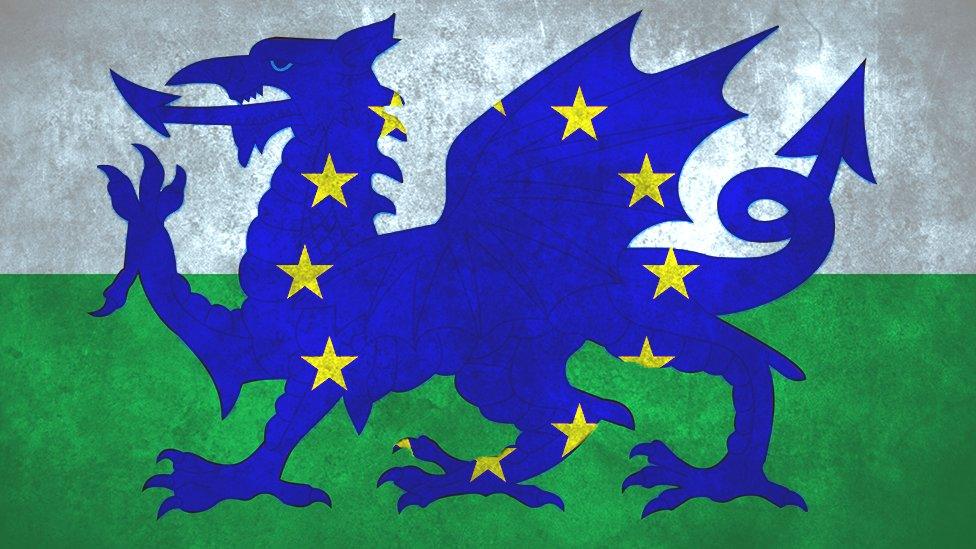Article 50: PM says 'significant' increase to Welsh powers
- Published
- comments
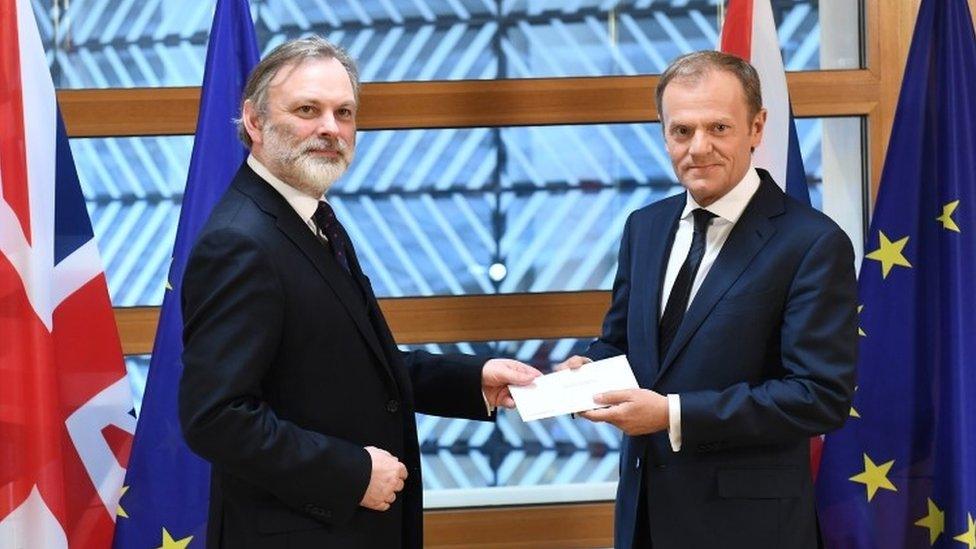
UK representative Sir Tim Barrow hands the Article 50 letter to European Council president Donald Tusk
Wales can expect a "significant increase" in devolved powers following Brexit, the prime minister has said.
The UK government has officially started the process of leaving the European Union.
In the letter to trigger Article 50 Theresa May said she would consult on which powers should be devolved.
First Minister Carwyn Jones said there was "no reason" why Brexit should be "disastrous" and said its effect could be minimal if done properly.

The letter to Mr Tusk says ministers will negotiation "as one United Kingdom"
In the letter to European Council president Donald Tusk, Mrs May said: "From the start and throughout the discussions, we will negotiate as one United Kingdom, taking due account of the specific interests of every nation and region of the UK as we do so.
"When it comes to the return of powers back to the United Kingdom, we will consult fully on which powers should reside in Westminster and which should be devolved to Scotland, Wales and Northern Ireland.
"But it is the expectation of the Government that the outcome of this process will be a significant increase in the decision-making power of each devolved administration."
Carwyn Jones says it is "regrettable" he was not allowed to contribute to the letter
Carwyn Jones told BBC Wales that there was "no reason" why Brexit "should be disastrous".
Mr Jones said the negotiations will take "much more than two years. It will be five years. We have to be patient.
"What's important is that this is got right and not rushed and got wrong."
He said if the negotiations are "done properly then actually the effect can be minimal. The effect can be such that it won't cause us any difficulties at all.
"If it is done badly it's a potential disaster. It makes Wales and the UK look as if we're out on a limb somewhere, a group of islands off the coast of Europe that isn't part of a very large market."
Earlier, in a statement responding to the triggering of Article 50, Mr Jones told the Senedd that he would welcome Mrs May's comments on devolving powers if they "prove to be the case".
"If not, this government will oppose vigorously as, I have no doubt, will others in this chamber," he said.
Mr Jones told AMs that although he had discussed the letter "in general terms" with the Prime Minister when she visited Swansea last week, ministers did not see the letter before Wednesday, nor were invited to contribute to its drafting.
"This is unacceptable and is the culmination of a deeply frustrating process in which the devolved administrations have been persistently treated with a lack of respect," he said.
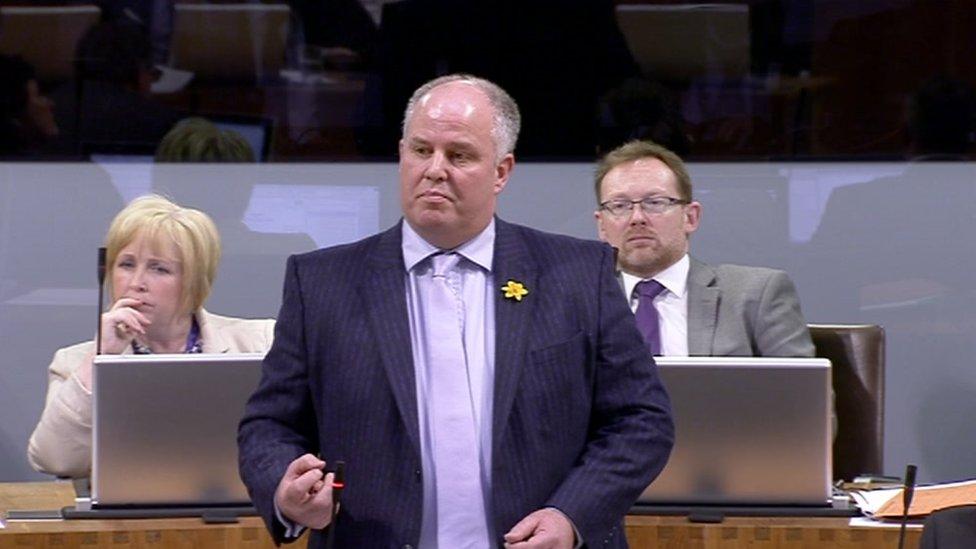
Andrew RT Davies welcomed Mrs May's commitment to give more powers to Wales after Brexit
Andrew RT Davies, the Conservative leader in the assembly, rejected claims that Theresa May had not listened to and consulted the Welsh Government.
"The prime minister has been to Wales five times," he said, amid heckling in the chamber.
Mr Davies - who had campaigned to leave the EU - went on to accuse Mr Jones and his government of not engaging with those on the majority side of the referendum result.
He also welcomed the prime minister's commitment to give greater powers to Wales.
Earlier on Wednesday Mr Davies told BBC Radio Wales the first minister had no evidence to support his claim on Tuesday that farming subsidies could disappear after the UK leaves the European Union.
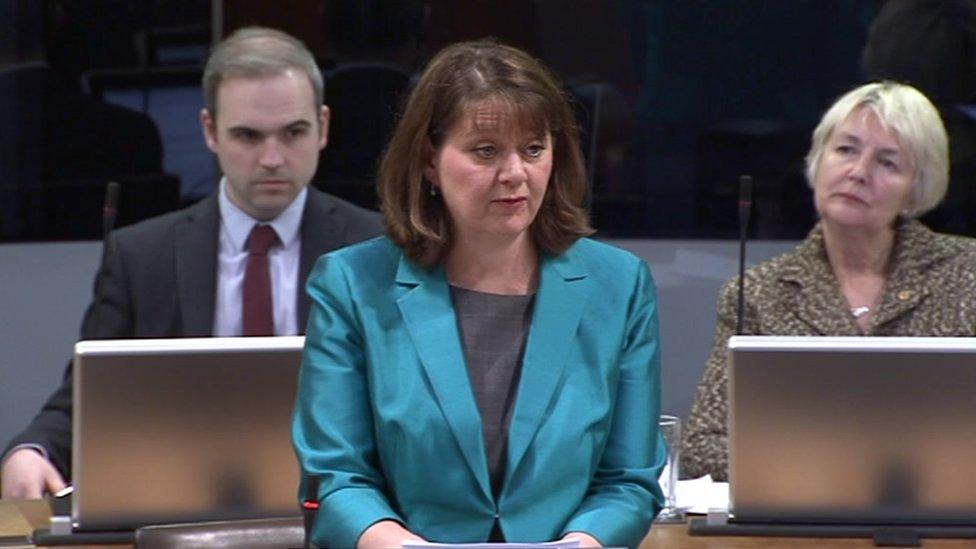
Leanne Wood warned against the UK leaving the Welsh single market
Plaid Cymru leader Leanne Wood told the Senedd that Wednesday was a "profound day in the history of Wales".
Highlighting that 67% of exports in Wales last year went to the EU, she said: "While Wales voted narrowly to leave the EU, the UK government's intention is to take us out of the single market as well.
"The UK government's intention to reach a free trade agreement will not put us in the same position as Norway, Iceland or Switzerland."
Neil Hamilton said the triggering of Article 50 amounted to a great day for the assembly.
UKIP assembly group leader Neil Hamilton said he regretted that Mr Jones "yet again has failed to rise to the level of events".
"Does he not see that today acts as a great day for the United Kingdom and a great day for Wales?" Mr Hamilton asked.
"Because what we are seeing here is the beginning of a process of the restoration of democratic self-government.
"I say to the first minister, do cheer up." he added.
David Rees, the Labour AM who chairs the assembly's external affairs committee, said: "Irrespective of party, or of where we stood during the referendum, we must now come together in the Welsh interest.
"We have years of hard work ahead of us and we will need to draw on the expertise and talents of the Welsh people to get a deal that is right for Wales."
Vaughan Roderick says the governments are moving closer on Brexit, but the rows are far from over
Welsh Liberal Democrat leader Mark Williams MP said the prime minister had chosen "the hardest and most divisive form of Brexit ... tearing Wales' businesses, farmers, and industry out of the world's biggest single market".
"I welcome the commitment to the transfer of powers to Wales," he added.
"However Wales must have the resources to effectively deliver for the people of Wales on those new powers."

Analysis by BBC Wales parliamentary correspondent David Cornock
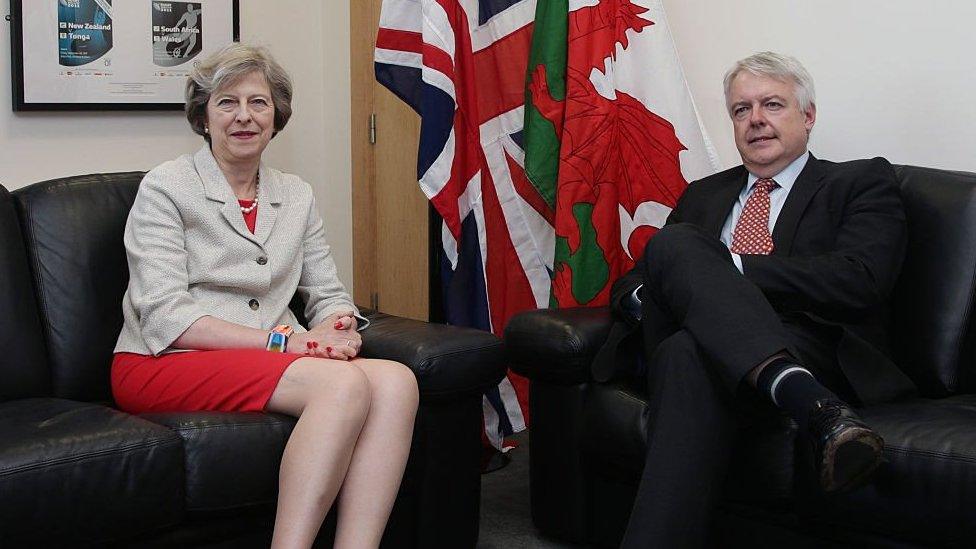
The prime minister promised that the Welsh Government would be "fully engaged" in the Brexit process but it has not been difficult to highlight differences between the approach of the UK and Welsh governments.
Theresa May believes continued membership of the single market "would mean being bound by EU laws. That would mean in practice not leaving the EU".
The Welsh Government - and Plaid Cymru - believe continued "participation" in the single market is still possible if the freedom of movement rules apply only to those with a job.
But it is also easy to exaggerate the differences between the two governments. As recently as January, a spokesman for the first minister said they were not "irreconcilable". Welsh Secretary Alun Cairns has spoken of "common ground" on free trade.
- Published29 March 2017
- Published30 March 2017
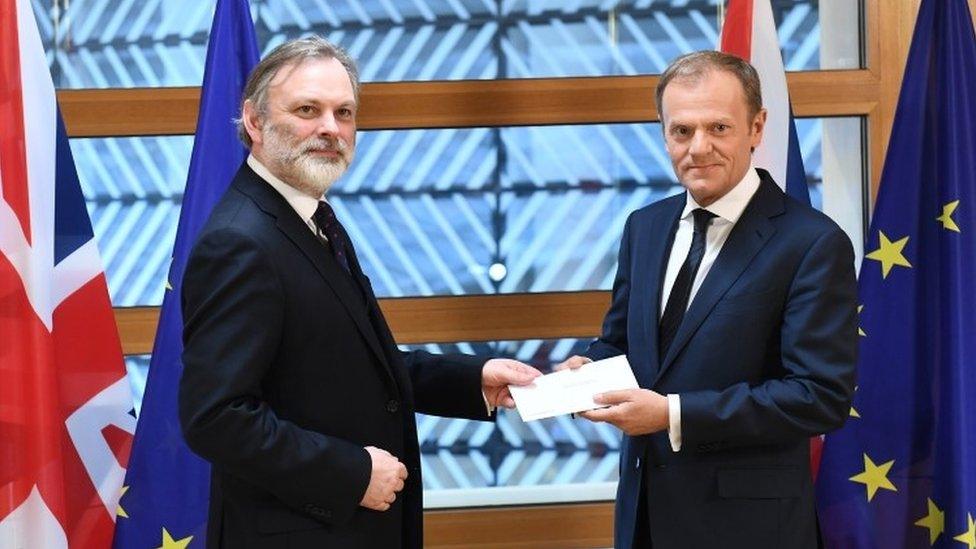
- Published28 March 2017
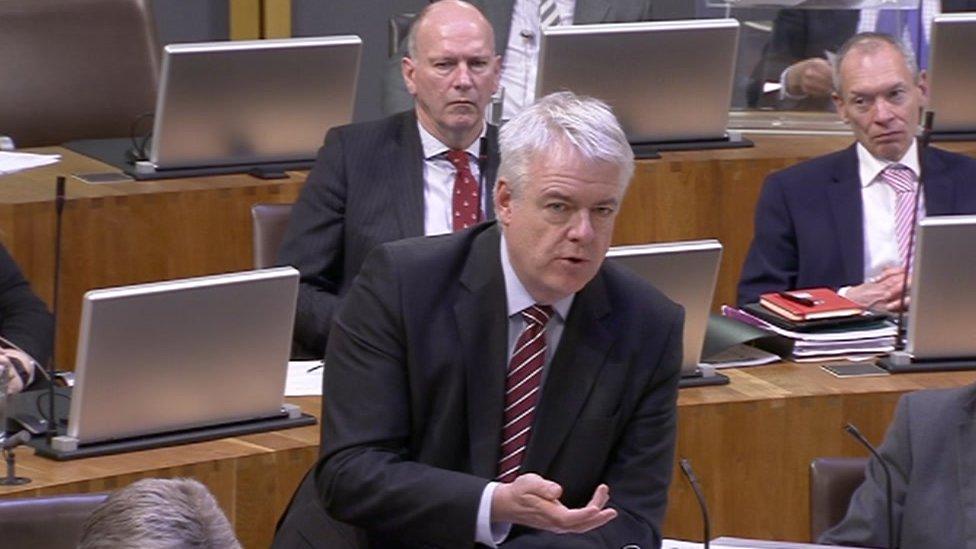
- Published29 March 2017
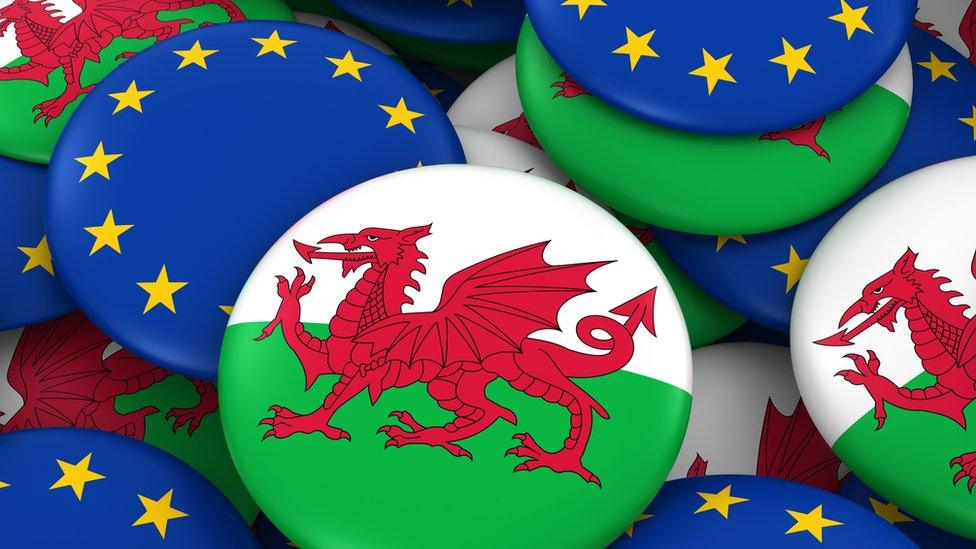
- Published29 March 2017

- Published23 January 2017
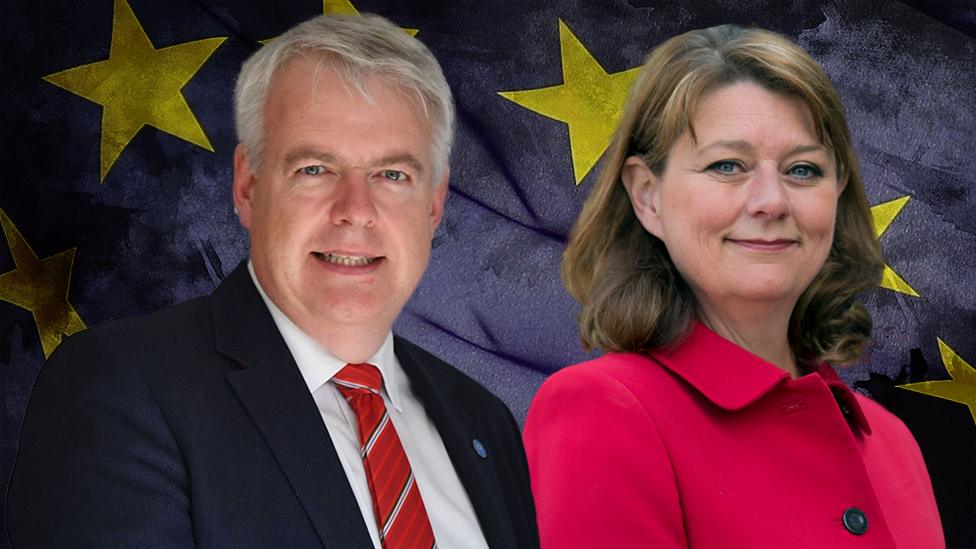
- Published12 March 2017
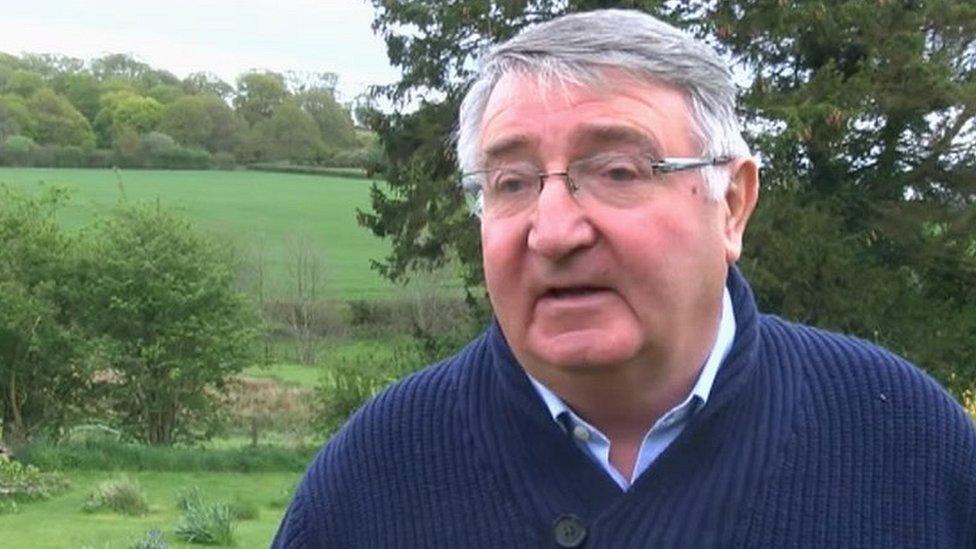
- Published22 February 2017
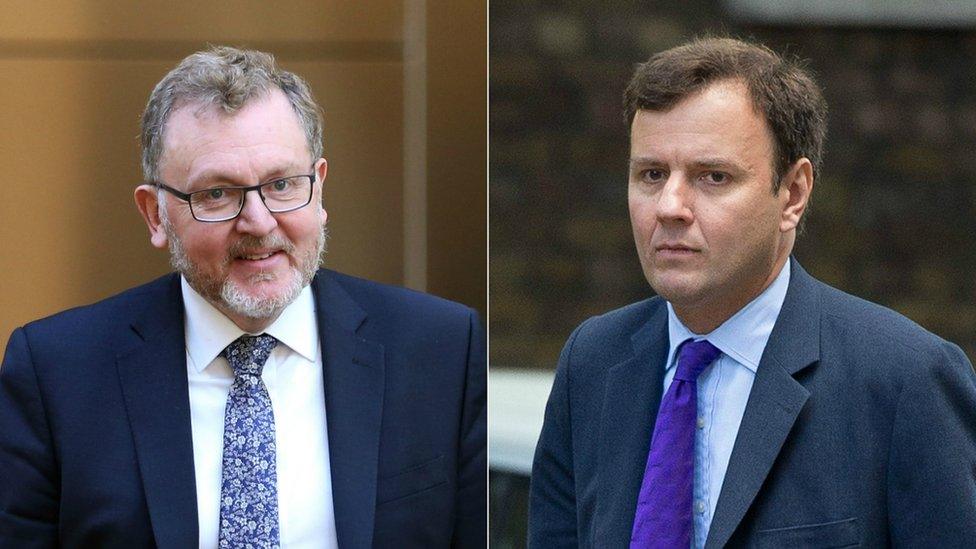
- Published23 December 2016
